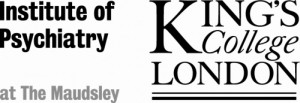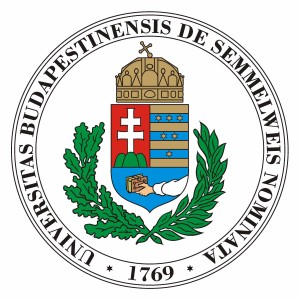|
The ROAMER consortium comprises 14 partners from accross Europe to collaborate on the roadmap. The project partners are (click the partner's name to read more information):
Consortio CIBER para el Área Temática de Salud Mental (CIBERSAM)

CIBERSAM has two distinct roles in the project in leading WP1 (Project management) and WP8 (Well-being).
CIBERSAM is a research consortium funded by the Spanish Ministry of Science. It's mission is to carry out and promote research in mental health. The final mission of CIBERSAM is to improve clinical care and mental health in the society through the knowledge generated by translational research in psychiatry and neuroscience. CIBERSAM is a recognised research leader in Spain and Europe, including 26 clinical and basic research groups, which cover all areas of mental health.
CIBERSAM members participating in ROAMER have extensive experience in management and coordination in mental health and well-being research both on national and international level. For more detailed information on the members, please read the table below. For further information regarding CIBERSAM, please visit their website. CIBERSAM also plays an important role in The Affective Disorders Multidisciplinary Research Team. To learn more about more of CIBERSAM's role in the team, please visit their website.
| Name |
Affiliation |
Expertise |
| Josep Maria Haro Abad |
MD, PhD
San Juan de Dios |
International and national multicentric studies. |
| Jose Luís Ayuso-Mateos |
MD, PhD
Universidad Autónoma de Madrid |
Experience in international and national multicentric studies in the area of epidemiology, suicide, nosology and public health aspects of MH. |
| Celso Arango |
MD, PhD, professor of Psychiatry at the Complutense University of Madrid and at the School of Medicine. University of Maryland, EEUU |
Expertise in consulting and assisting national and international networks that support mental health research. Clinical research leadership in schizophrenia and child psychiatry. |
| Eduard Vieta |
MD, PhD: professor of Psychiatry at the University of Barcelona |
Head of the Bipolar Disorder Programme at the Clinic of Barcelona. Expertise in neurosciences, mental disorders, comorbidity and psychotherapy. |
| Ana María González Pinto |
MD, Professor of Psychiatry at the University of the Basc Country |
Investigation upon episode bipolar disorder and schizophrenia research. Consulting experience in psychiatric associations.. |
| Jerome Bickenbach |
Professor, Department of Philosophy and Professor, Faculty of Law. Queen´s University Health Science and Health Policy Institute, Lucern University |
Expert in international disability law and policy, focusing primarily on the UN Convention for the Rights of Persons with Disabilities.
WHO Consultant. |
| Jorge Cervilla |
MD, PhD; professor of Psychiatry at the University of Granada and Honorary Senior Lecturer at the University of London |
Gene-environment interactions as risk factors of mental disorders. Experience in leading mental health research. High communicational skills. Expertise in epidemiological studies. |
| Benedicto Crespo |
MD, PhD. Professor of Psychiatry at the Universidad de Cantabria |
Gene and neuroimaging studies in schizophrenia. |
| Beatriz Olaya Guzmán |
PhD, MSc, Postdoctoral researcher |
Methodological and statistical knowledge. |
| Carla Obradors Tarragó |
PhD, MSc, Postdoctoral researcher |
Methodological and neuroscientific knowledge, project management. |
| Marta Miret García |
PhD, MSc, Postdoctoral researcher |
Methodological, statistical and well-being knowledge |
King's College London (KCL)

The Institute of Psychiatry is part of King’s College in London and is the largest institute in Europe dedicated to research in the understanding and treatment of mental illnesses. The research stretches from basic neuroscience through epidemiology to health services implementation research and much of this research strongly influences policy. The Institute is also part of King’s Health Partners – a partnership of health care providers and university health care experts which will provide local health and mental health care which is informed by research. It is a partnership with close links to the local community so that services meet local needs.
Research at the Institute is also helped by the presence of the Service User Research enterprise which involves service users in all parts of research from its design to its dissemination. The Institute’s research is funded from organisations around the globe and it also has world influence. It therefore has the key organisational profile of previous experience in managing European projects, scientific expertise as well as a broad approach to research in mental health by involving users and influencing policy.
For further information regarding the King’s College London, please visit their website. The Institute of Psychiatry’s website is available here. For more detailed information please visit the website of the Health Service and Population Research Department as well!
Besides leading WP11: Translation into roadmaps, KCL plays key roles in several other ROAMER work packages (WP1, WP2, WP5, WP6, WP7, WP9, WP10) as well.
FondaMental Foundation (FondaMental)

FondaMental Foundation plays a key role in ROAMER with leading WP3: Research capacity and infrastructure, in collaboration with INSERM and with URC-ECO Ile de France.
FondaMental is a scientific private foundation created in 2007 by the French Ministry of Research for the promotion and support of Mental Health research and care. The mission of FondaMental is to implement an innovative strategy for the management of psychiatric illnesses in France and to promote cutting-edge psychiatric translational research extending from basic science to therapeutic application.
The objectives of FondaMental focus on three main areas:
- Health care and medical/social area: FondaMental expert centres are designed to work complementarily to the “sectorial” non-specialised organisation of French psychiatry. The expert centres are regional, multidisciplinary structures specifically dedicated to a complete diagnostic evaluation. Patients are referred to these centres by resource centres, general practitioners or psychiatrists. FondaMental expert centres focus on three major disorders: bipolar disorder, schizophrenia and autism (Asperger's syndrome);
- Research area: FondaMental supports clinical research, research into the aetiological mechanisms and studies on new therapeutic strategies for these three disorders carried out in collaboration with teams from INSERM, Pasteur Institute, CNRS, universities and other platforms;
- Training and educational area for researchers and health professionals
For further information regarding Foundation FondaMental, please visit their website
Institut National de la Santé et de la Recherche Médicale/European Clinical Research Infrastructures Network (INSERM)


INSERM is a national public research agency composed of several hundred units active in all fields of medical research throughout the entire French territory. The European Clinical Research Infrastructures Network (ECRIN) is the European Strategy Forum on Research Infrastructures (ESFRI) roadmap infrastructure for clinical research, hosted at INSERM headquarters in Paris.
ECRIN is an FP7-funded distributed infrastructure enabling multinational cooperation in investigator-driven clinical research, providing access to patients throughout Europe, with a major impact on science and healthcare. ECRIN supports multinational clinical research projects. ECRIN is based on the connection of national clinical research infrastructures networks, currently covering 14 countries in Europe (Austria, Belgium, Denmark, Finland, France, Germany, Hungary, Ireland, Italy, Poland, Spain, Sweden Switzerland, United Kingdom. ECRIN is also involved in the IMI-funded European Medicines Research Training Network (EMTrain) project, developing a pan-European strategy and tools for training programmes for the medicines research and development professionals in Europe.
On behalf of ECRIN, only INSERM will be active in ROAMER, playing an important role in the work of WP3: Structuring of reseach capacity, infrastructures, capacity building&funding.
Maastricht University Medical Centre (MUMC)

At Maastricht University Medical Centre, the Research School Mental Health and Neuroscience(MHeNS) is one of the five MUMC Research Schools that are accredited by the Dutch Royal Academy of Sciences. MHeNS has three research topics: mental health, neurodegeneration and neuromodulation.
MUMC is the leading beneficiary of in WP2: Analysis of geographic, clinical, multi-disciplinary and life course integration. The specific expertise brought to this WP by MUMC are wide, ranging from experience in large-scale European projects; expertise in mental health systems in many European countries; expertise in integrating clinical and non-clinical areas of research in mental health; through combining psychiatric, psychological and biological perspectives in mental health research; to expertise in conducting top-level research in mental health in Europe.
For further information regarding Maastricht University Medical Centre, Mental Health and Neuroscience(MHeNS), please visit their website.
Technische Universitaet Dresden (TUD)

Founded in 1828, the Technische Universitaet Dresden (TUD) is a full-scale university with 14 faculties, including science and engineering, humanities, social sciences and medicine. TUD has extensive experience in project coordination and project management at national and international level.
The Institute of Clinical Psychology and Psychotherapy and its Centre of Epidemiology and Longitudinal Studies (CELOS) rank among the top 10 European centres in mental health and treatment research as well as clinical epidemiology of mental disorders and longitudinal studies. The Institute with its over 70 staff members is and has been involved as coordinator or participant in over 20 national and international large-scale studies and collaborates with leading institutions such as the US National Institutes of Health, the World Health Organisation and the European Brain Council. TUD contribution and expertise consist of the comprehensive coverage of psychological, psychotherapeutic and psychosocial approaches and models, supplementing the biomedical perspective. This includes basic and applied research on psychological mechanisms of mental health and mental disorders, research issues involved in intervention and behavioural change, as well as mechanisms and models of providing interventions within a broader mental health/mental disorder context. Expertise stretches from the ability of basic and applied research over managing international large scale studies and surveys to public health and intervention research.
For further information regarding the Technische Universitaet Dresden, please visit their website.To read more about the Institute of Clinical Psychology and Psychotherapy and its Centre of Epidemiology and Longitudinal Studies, please visit their website.
TUD is the lead beneficiary of ROAMER WP5: Psychological research and treatments. Their work will be closely and synergistically coordinated particularly with WP4: Biomedical research as well as the WP7: Public health research.
London School of Economics (LSE)

The Personal Social Services Research Unit (PSSRU) at LSE is one of the leading social care research groups, both within the UK and internationally, conducting research and policy analysis aimed at the improvement of equity and efficiency of community based health and social care services. Since its establishment in 1974, PSSRU has had considerable impact on national social care policy in the UK and in some other countries. PSSRU has also established itself as the leading European group on mental health economics and policy. The School has a unique reputation for depth and breadth in British Social Science, with a long history of policy impact.
PSSRU at LSE has substantial experience of undertaking cost-effectiveness evaluations in the mental health field. At an international level the MHEP programme includes numerous EC-supported projects.
Within ROAMER, LSE will lead WP6: Social and economic aspects.
For further information regarding the London School of Economics, please visit their website. The website of the Personal Social Services Research Unit is available here.
Central Institute of Mental Health (CIMH)

The Central Institute of Mental Health (CIMH) is a globally recognised centre of modern psychiatry delivering outstanding science, research and teaching in partnership with institutions at home and abroad. It combines 304 bed hospital facilities with broad neuroscientific resources in genetics, imaging, animal models, cognitive neuroscience and therapeutic studies, a longstanding focus on social psychiatry and services research, and large epidemiological cohorts. Among his more than 400 scientists are the only German chair for addictions research and for psychopharmacology of children and adolescents. CIMH is a WHO collaborating centre.
CIMH contributes to WP3: Structuring of research capacity, infrastructures, capacity building&funding strategies, and WP4: Biomedical research within the ROAMER project.
For further information regarding the Central Institute of Mental Health, please visit their website.
Nordic School of Public Health (NHV)

The Nordic School of Public Health (NHV), Gothenburg, Sweden, is maintained and funded by governments of the five Nordic countries (Denmark, Finland, Iceland, Norway and Sweden) through the Nordic Council of Ministers. It is governed by a Board appointed by and responsible to the Nordic Council of Ministers. The school is a WHO Collaborating Centre for human resources, capacity building and public health. The school provides postgraduate public health education and is a centre for interdisciplinary Nordic public health research. The NHV hosts successful research projects in e.g. mental public health, health promotion, universal design and global health. The multidisciplinary Nordic network for mental health research, which is funded by the Nordic governments through a NordForsk grant, is organised within the Nordic Research Academy for Mental Health at NHV. The Nordic mental health research network steering committee includes members representing the leading centres in Nordic mental health research.
NHV plays a central role in drafting the road map for public mental health research, not only by leading WP7: Public health research but also by giving considerable contributions to WP3 regarding research infrastructures, in particular in the area of infrastructures needed for successful public mental health research in Europe; to WP8: Well-being; and to WP10: Promotion and dissemination by taking responsibility for dissemination of results in northern Europe.
For more detailed information regarding the Nordic School of Public Health, please visit their website. The website of the Nordic School Research Network on Evidence and Mental Health is available here.
University of Naples (SUN)

Since 1985 the Department of Psychiatry of the University of Naples is a Collaborating Center of the World Health Organization for Research and Training in Mental Health. One of the most active research lines of the Department deals with the needs of users of mental health services and their carers (including their views about illness and its treatment, perceived stigmatisation, coping strategies and support network). The Department has coordinated research projects funded by the European Commission on burden on the families of patients with schizophrenia, on implementation of psychoeducational interventions for families of patients with schizophrenia and take part in projects on coercive treatments in psychiatry and on clinical decision making in psychiatry (2009-present).The Department has a long tradition of collaboration with various stakeholders: organisations of users and carers at the national and international level; national and international professional associations; nongovernmental organisations; governmental agencies and funding bodies.
SUN is the leading beneficiary of WP9: Stakeholder involvement within ROAMER. The website of SUN for further information is available here.
Semmelweis University Budapest (SE)

The Department of Psychiatry and Psychotherapy at Semmelweis University has more than a hundred-year-old tradition of academic excellence and commitment to education and patient care and is recognised as a nationally leading centre of research in several aspects of psychiatry. In their studies of psychiatric disorders (including schizophrenia, bipolar disorder, ADHD, dementia) they aim to bring together several key research disciplines including psychopharmacology, neuropsychology, epidemiology and molecular genetics, neuroimaging and brain mapping. By strengthening the research function of the Department, cooperation between academic research and industrial applications have been implemented in the field of biotech and pharmaceutical research and development.
Within ROAMER the Department of Psychiatry and Psychotherapy of the Semmelweis University is responsible of WP10: Promotion and dissemination.
For further information regarding Semmelweis University, please visit their website.
University of Manchester (UNIMAN)

The University of Manchester is Britain's largest single-site university with a proud history of achievement and an ambitious agenda for the future. UNIMAN has a history in research, innovation and enterprise stretching back over 75 years. No fewer than 22 former staff and students have gone on to become Nobel prizewinners, with four current Nobelists on its staff, more than any other UK University. The Faculty of Medicine and Human Sciences is the largest in Europe. It has three strategic research priority areas: cancer medicine; inlammation and repair; and health sciences, including mental health sciences. It is now part of Manchester Academic Health Science Centre, one of the five in the UK to be so designated, whose aim is to develop and evaluate innovative treatments with rapid implementation, with mental health being one of the five key themes. The Faculty has state of the art research facilities, including neuroPET molecular imaging.
For further information regarding the University of Manchester, please visit their website.
With UNIMAN playing key roles in several ROAMER work packages (WP1, WP2, WP6, WP9, WP10, WP11), its expertise is being essential to the whole ROAMER programme.
University of Cambridge (UCAM)

The Behavioural & Clinical Neuroscience Institute (BCNI) is the leading translational interface at Cambridge University in the domain of neuropsychiatry. The BCNI (jointly funded by the U.K. Medical Research Council and the Welcome Trust) is an interdisciplinary group of neuroscientists working together at UCAM to understand the behavioural, cognitive and neurobiological basis of psychiatric and neurological disorders. The BCNI has strong themes of neuroimaging research, including cellular and systems imaging (with MR, PET and EEG) and of neuropsychopharmacology across rodents, monkeys and humans (healthy volunteers and mental health patients). The main aim is to optimise translational neuroscience studies across species with a focus on mental health, in particular impulsive/compulsive disorders, including drug addiction, attention deficit hyperactivity disorder (ADHD) and obsessive compulsive disorder (OCD); disorders at the cognitive-emotional interface such as psychosis, depression and anxiety and cognitive disorders, such as in dementia and schizophrenia. The BCNI comprises approximately 200 research members led by 20-30 senior academic affiliates spread across basic departments (Experimental Psychology and Physiology, Development and Neuroscience) and the Clinical School (Psychiatry, Clinical Neurosciences and the Wolfson Brain Imaging Centre).
For further information regarding the University of Cambridge, please visit their website.
UCAM will contribute to the work of several ROAMER work packages (WP1, WP2, WP4, WP5, WP9, WP10, WP11).
CF consulting Finanziamenti Unione Europea (CF)

CFc is a SME in majority composed by women involved in research programmes, technological, environmental, financial, training, cultural issues and innovation policies relevant at national and European level, based in Milan and in Brussels. CF team gathers 12 consultants with complementary experience. The company offers scientific, legal, economical and statistical competences, in order to give a concrete and complete support to: dissemination process targeted to economic authorities and politicians and public aimed to enlarge the awareness at European level on the project’s results;
organisation of project meetings and workshops; support to transfer of knowledge within and outside consortia design, implementation and maintenance of project’s website; knowledge management and quality assurance, in order to ensure the proper information availability for all partners and the correct activities’ progression. Minor tasks are related to management of research funded projects, organisation of training activities. For further information regarding CF, please visit their website.
In ROAMER CF contributes to the dissemination and exploitation activities ( WP10), giving its support to the Coordinator for the creation and maintenance of the project website, designing and updating the dissemination plan, maintaining a repository for the publication issued within the project, designing the project leaflet and brochure and targeting relevant stakeholders at any level. CF is involved into the organisation of workshops, seminars and training activities. Furthermore, CF is also involved in management activities ( WP1) supporting the Coordinator for: the assessment of consistency of the project costs with the tasks performed, the preparation of customised standard formats and templates needed for technical and financial reporting, and the organisation of project meetings.
|
| 2014 ROAMER's Survey |
| Only 10 minutes to orientate the future of mental health research in Europe. |
 MORE INFORMATION MORE INFORMATION Survey for stakeholders Survey for stakeholders |
 |



 CIBERSAM has two distinct roles in the project in leading WP1 (Project management) and WP8 (Well-being).
CIBERSAM has two distinct roles in the project in leading WP1 (Project management) and WP8 (Well-being).















 MORE INFORMATION
MORE INFORMATION
